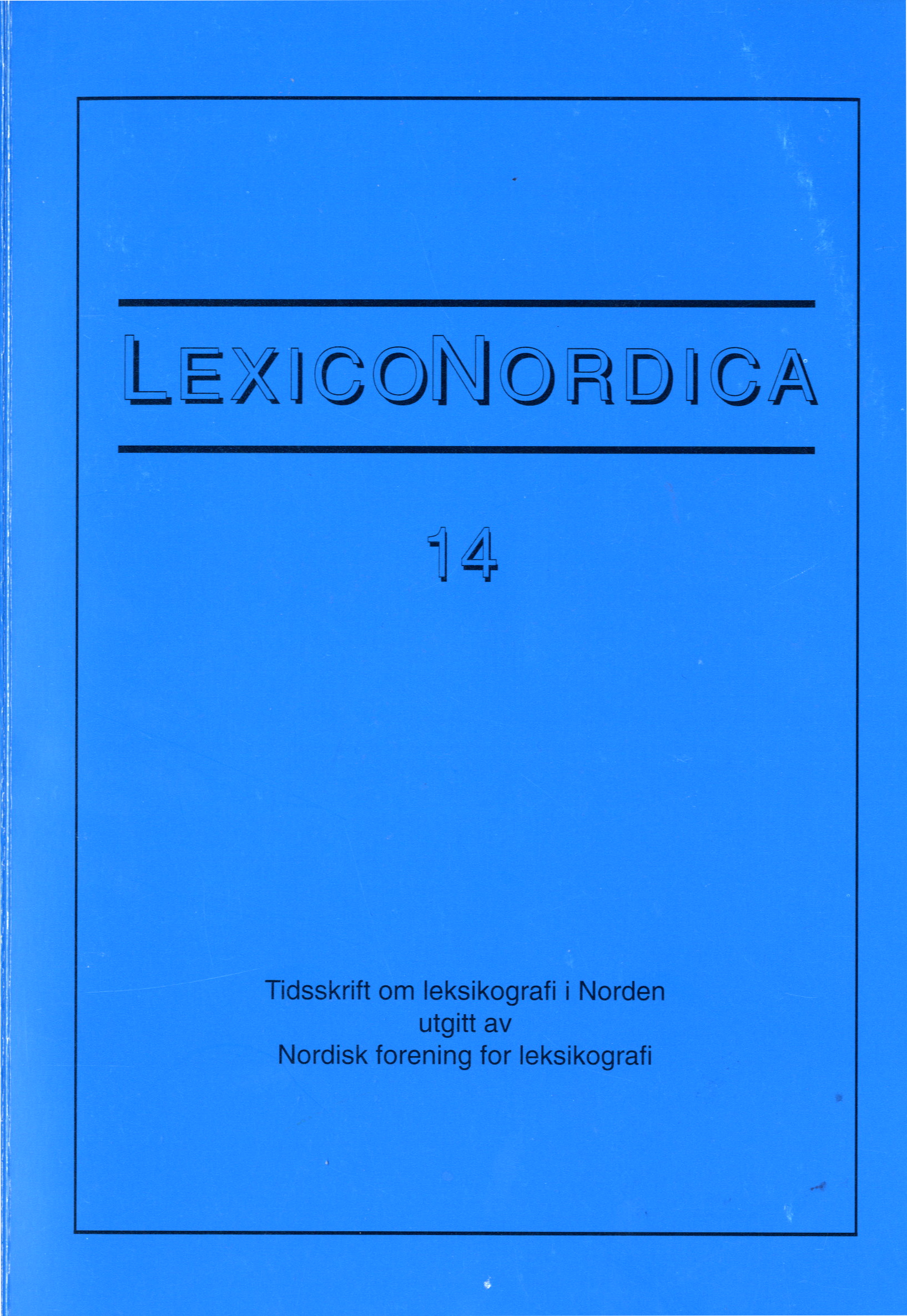Orden och världen. Lexikografens dubbla perspektiv
DOI:
https://doi.org/10.7146/ln.v0i14.18542Resumé
In this paper I try to establish both differences and interrelations between mono- and
bilingual lexicography (for which I coin the term glossography) from the making of
specialized dictionaries and encyclopedias (for which I coin the term cosmography).
Glossography aims at establishing a semantic equivalent between the entry
word and its explanation. Cosmography aims at the opposite: with the entry word as
a point of departure, a cosmographic article will provide the user with new information
that is not inherent in the entry word itself. On another level, the cosmographer
strives to organize the world systematically and to find the most suitable entry word
for the fragment of the world he wants to describe. The glossographer takes the
word as the point of departure, and relations between words (hyponomy, synonymy
etc.) is secondary. But in practice the two approaches are interrelated. A typical
glossography will contain lots of more or less specialized technical terms from different
fields which cannot be explained without reference to the world. Also, glossographic
articles often include cosmographic information that places the meaning
of a word in an extralinguistic context. And glossographic features are often included
in cosmographic articles: pronunciation, etymology.
Downloads
Publiceret
Citation/Eksport
Nummer
Sektion
Licens
LexicoNordica og forfatterne





